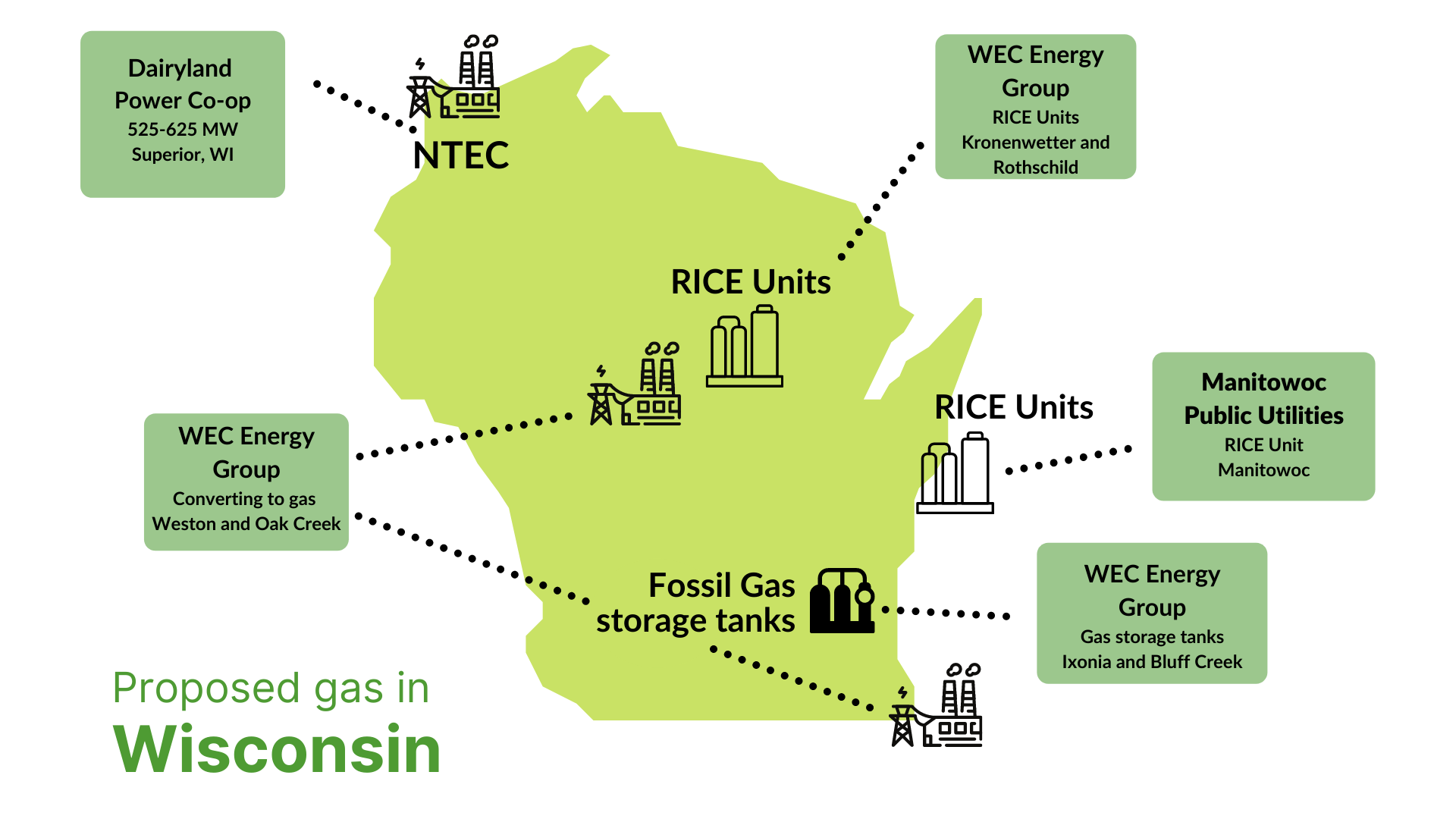We know gas has no part in our clean energy future, and today it’s more clear than ever before. In the scientific findings released this August by the Intergovernmental Panel on Climate Change (IPCC), methane is named specifically as an extremely potent greenhouse gas -- more than 80 times as powerful as carbon dioxide. Methane is the main component of the gas that is burned in some power plants and is what many utilities claim as ‘clean’. Natural gas is the industry term used to mask the negative impacts of this fossil fuel.
 The Governor’s Task Force on Climate Change also confirmed this in their report, listing “Avoid All New Fossil Fuel Infrastructure” as the #47 ‘solution’, stating that “avoiding fossil fuel infrastructure is one way to prevent a carbon lock-in, where policies, infrastructure, and investments made in the past or present commit us to high-carbon emissions in the future, even when alternative technologies are available.” Attendees of the Conservation Congress showed support for this as well.
The Governor’s Task Force on Climate Change also confirmed this in their report, listing “Avoid All New Fossil Fuel Infrastructure” as the #47 ‘solution’, stating that “avoiding fossil fuel infrastructure is one way to prevent a carbon lock-in, where policies, infrastructure, and investments made in the past or present commit us to high-carbon emissions in the future, even when alternative technologies are available.” Attendees of the Conservation Congress showed support for this as well.
We’ve made great progress in decarbonizing the electricity sector in the last few years- getting almost all of Wisconsin’s coal plants slated for retirement. We know that this coal must be replaced with clean energy if we’re going to avoid the worst impacts of climate change. We know that we can’t stop climate change by investing in more fossil fuel infrastructure. However, utilities across Wisconsin are proposing replacing one fossil fuel with another and proposing gas infrastructure.
Here are a few of the projects that have been proposed:
-
WEC Energy Group (the parent company of We Energies and Wisconsin Public Service) is moving forward with plans to build two small gas plants (reciprocating internal combustion engine units known as ‘RICE’ units) in Rothschild and Kronenwetter in the central part of the state.
-
WEC announced they would be stopping coal use (great news!), but they announced they would be switching to burning gas at their coal plants in Oak Creek and Weston.
-
WEC is also moving forward on two gas storage facilities that will cost customers $470 million, even though we found a less expensive, cleaner alternative that could reduce energy burden.
-
Great Lakes Utilities has proposed a RICE unit in Manitowoc
-
Dairyland Power Cooperative is pushing forward with plans to build a large new gas plant in Superior, despite serious legal challenges. Dairyland also wants to pay for the plant in part with a loan from the Biden administration, despite President Biden’s climate commitments.

In addition to the climate impacts of these proposals harm the communities they are located in. Gas infrastructure is known to emit harmful chemicals that harm nearby residents. The Task Force report also recognized “the continued placement of infrastructure adjacent to Indigenous, Black, and other communities of color.”
In all of these proposals we’re watching, we’ve also found that clean energy alternatives, energy efficiency, and/or battery storage solutions are more affordable and gas infrastructure will likely become a stranded asset. High electricity rates hurt those already suffering the most. Some Black, Latinx and Hispanic neighborhoods in Milwaukee suffer from energy burden (the percentage of your income that goes to electricity bills) at rates double those of white neighborhoods. We also know that communities of color will suffer the worst from climate change.
Building fossil fuel infrastructure while trying to address climate change is like stopping for an errand when you’re already late or going on a shopping spree when on a budget. It’s counterproductive and nonsensical. Learn what you can do to stop this nonsense here.